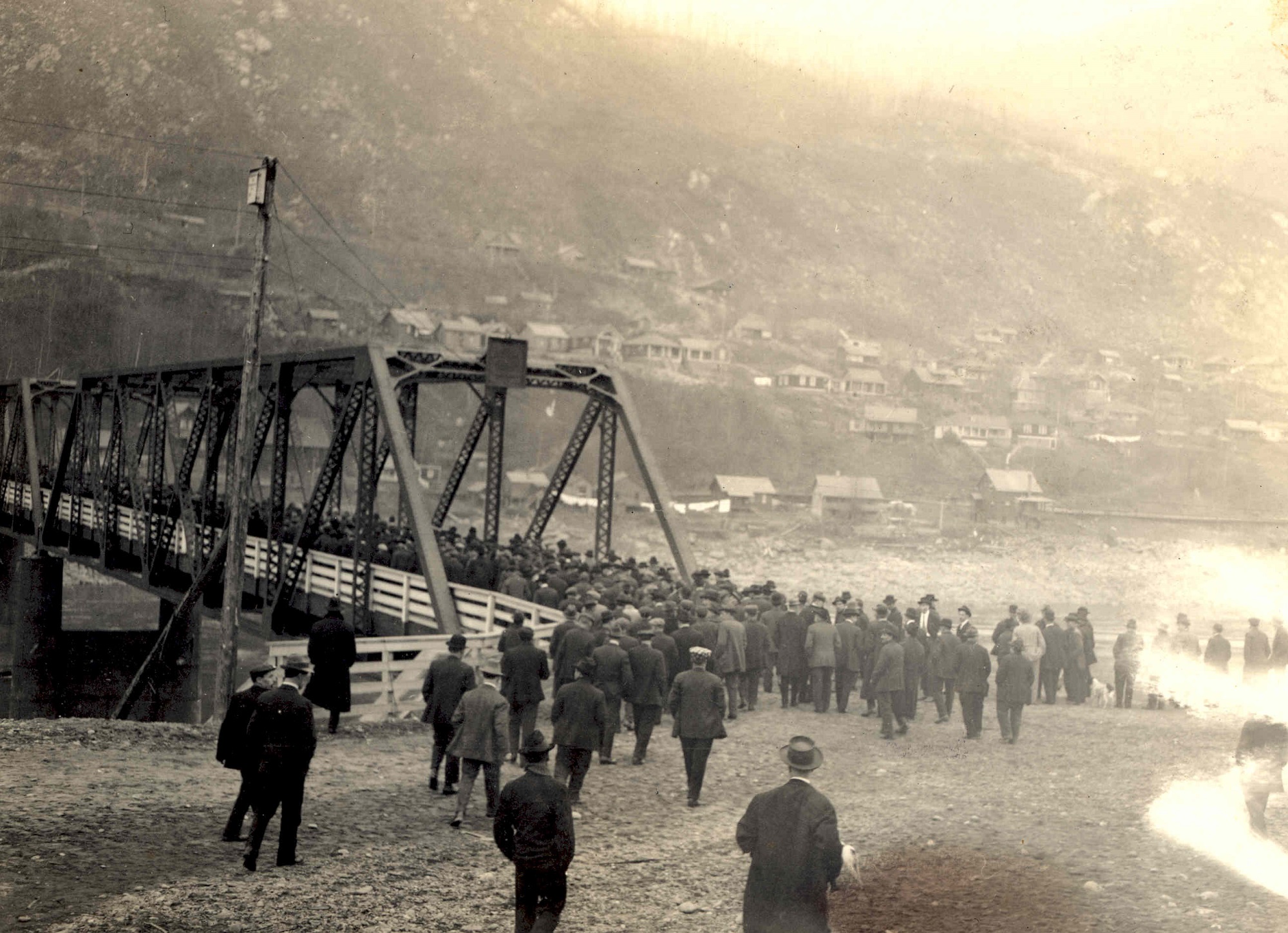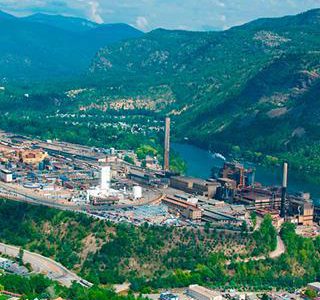A Foundation of Respect; Forging Employee and Company Relationships
Teck Trail Operations is proud to commemorate 125 years of continuous smelting with an eight-part series that explores the company’s significant role in the region and industry, from the gold rush to becoming one of the world’s largest fully integrated zinc and lead smelting and refining complexes. Since 1896, visionary leadership, generations of skilled employees, adaptation, and industry-leading technological advancements in mining and smelting have helped the company achieve long-term success. Please enjoy this series that celebrates our legacy as Champions of Innovation.
Throughout the company’s history, the relationship between the dynamic leadership and dedicated employees of Teck Trail Operations has proven resilient. In 1896, Fritz Heinze formed what was then known as the BC Smelting & Refining Company, which would go on to touch the lives of millions of people. Next, Managing Director Walter Aldridge ushered the company through consolidation and diversification. Then came the formidable Selwyn Blaylock, who accelerated the company’s success. For generations, the hardworking spirit shared by management and employees has driven collaboration, despite some difficult times.
British Columbia’s labour movement was unique within Canada due to the province’s development as a resource-based economy rather than an agricultural one. In the early 1900s, organized labour unions formed to help guarantee safe working environments, stable income, and other benefits for workers. For smelter employees in Trail, a few key events—including the 1917 strike and the subsequent creation of the Workmen’s Cooperative Committee—largely defined the labour movement.
In 1915, the Trail Mining, Mill & Smeltermen’s Union, Western Federation of Miners Local 105 was formed. Shortly after, Ginger Goodwin, a strong speaker and passionate socialist, led the 1917 strike, demanding increased wages and enforcement of an eight-hour workday. As one of the most well-known labour leaders in BC, he was elected Secretary of the union’s Trail chapter. While this strike failed to sufficiently resolve the issues of the time, the company recognized the need for improvement.
In December 1918, Blaylock created the Workmen’s Cooperative Committee, sometimes referred to as a “Company Union,” to represent workers and bargain with management over labour issues. This consisted of two employees from each of the smelter’s nine departments, and, under this structure, the company increased wages and began to offer a variety of other benefits.
In the 1920s and 1930s, the company began providing loans to buy houses, group life insurance, prepaid medical and hospital care, a non-contributory pension plan, and safety and apprenticeship programs. It also established the company store and social clubs for employees. Blaylock once spoke of the “glow of justifiable pride” he thought employees should feel for having “contributed to the building up of this great company.”
In 1967, the International Union of Mine, Mill and Smelter Workers, which had represented smelter workers since 1943, merged with the United Steelworkers (USW) and formed Local 480 in Trail. The Association of Commercial and Technical Employees (ACTE Local 1705) was established to support clerical and technical employees in 1973, becoming a part of the USW Local 9705 in 1979. Doug Jones, who was the president of USW Local 480 from 2003 to 2013, discusses how the relationship between the company and its employees has changed for the better, especially since the last major strike in 2005.
“Some really good things came out of the bargaining that went on between the union and the company,” he says. “There are some good benefits. There’s a good pension. In getting together, both sides realized that we needed to change the culture and the environment we did business in. It was about finding more respect for each other to get a lot more accomplished.”
Without question, Teck Trail Operations would not be the company it is today without its skilled, hardworking employees. The relationships connecting the company, the workforce and the union have ebbed and flowed, but Canadian values, respect and appreciation for all parties is the common thread woven into the fabric of their shared history.
__________
Teck Trail Operations has helped shape the Kootenay region both economically and culturally for over a century. Stay tuned for the next installment of Champions of Innovation, which will highlight RACE21 and the advancements the company is investing in today.























Comments